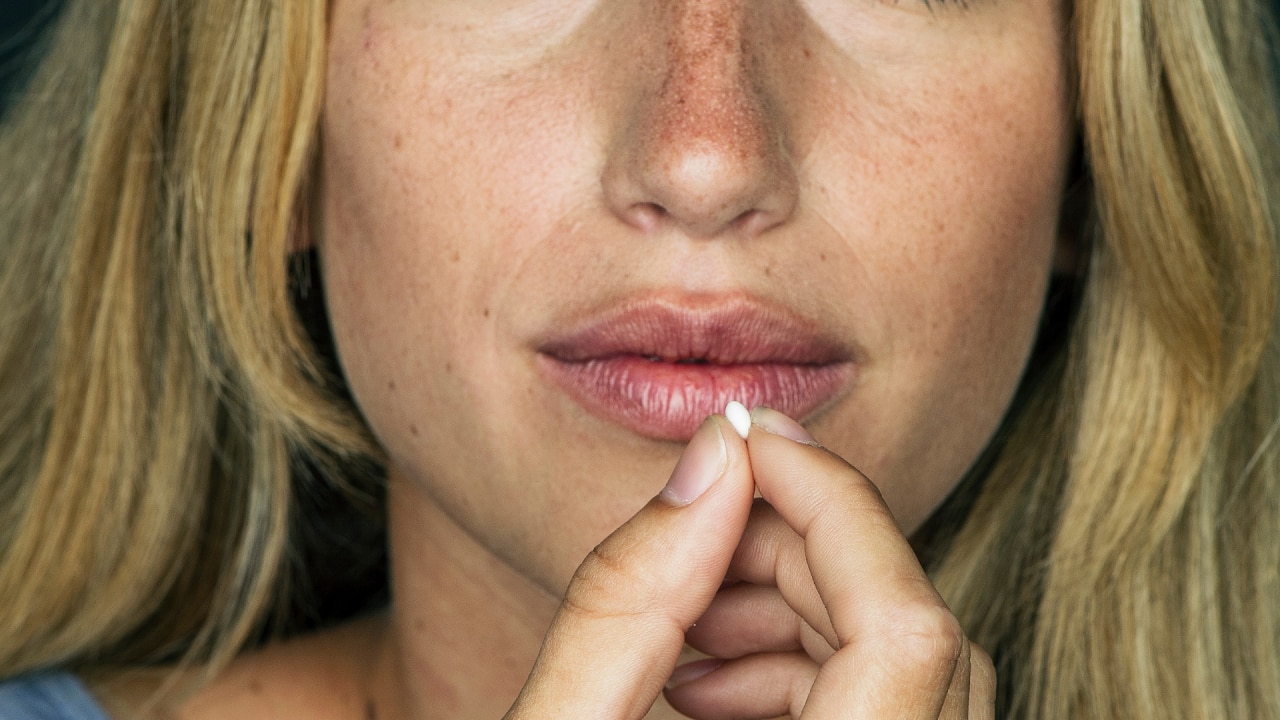Hate swallowing pills? These expert tips might help
Because some are hard to get down

If you have difficulty swallowing pills you're in the majority because the process isn't exactly intuitive. Here's what you can do to get your mind - and gag reflex - under control.
Transitioning from the liquid medications of our childhood to the grown-up world of pills is one of life's rites of passage. However, for some of us, this is not a smooth journey.
According to the Washington Post, roughly 40 per cent of us fall into this category, and there's a perfectly understandable reason for it: it's not the most instinctive of actions. In fact, it necessitates the daunting task of outmanoeuvring our gag reflex consistently.
Many factors can affect the ease, or lack thereof, with which the pill travels. This includes factors such as the pill's size, texture, taste, and smell, all of which can affect your ability to swallow it - even if you are a seasoned pill-taker. The good news is that pill swallowing is a skill, not an innate ability. Like any other skill, it can be learned, practised, and mastered.
Like what you see? Sign up to our bodyandsoul.com.au newsletter for more stories like this.
According to a Harvard Medical School study published in 2014, there are two techniques for mastering pill swallowing, one for tablets and the other for capsules.
The research suggests the 'Pop-Bottle Method' if you're dealing with a tablet. Fill a water bottle halfway with water and close your lips tightly around the bottle's mouth. As you take a drink, lean back and suck in the water, keeping the flow airtight. This creates a vacuum, allowing the tablet to easily slide down your throat. It helps three out of every five people.
On the other hand, the capsule method is effective in 89 per cent of people. The 'Lean-Forward Technique' involves slightly nodding your chin towards your chest before swallowing rather than leaning back. It may appear counterintuitive, but according to Endocrinologist Dr Izzy Smith, keeping your head down works because "the process of putting your chin down helps open up the entrance to the oesophagus."
Another important aspect of both of these methods is keeping your mouth moist. Not only is swallowing pills without water dangerous but the more hydrated and lubricated your throat is, the easier it is for the tablet to pass smoothly through the esophagus.
Dr. Mikayla Couch suggests speaking with a pharmacist about whether you should take the tablet on an empty stomach, and then mixing it into custard or thickened yoghurt. Alternatively, she suggests taking the tablet, swallowing it, and then taking a mouthful of food.

While pill-swallowing techniques can be life-changing for many people, they are not a one-size-fits-all solution. Nothing beats a customised treatment plan created in collaboration with a healthcare professional. We sought the advice of General Practitioner Dr Sam Saling, who suggests the following strategies for guiding her patients through pill-taking challenges.
Dr Saling stresses the importance of "working with your doctor to prescribe alternate forms such as liquid solutions or dissolvable tablets." This alone can have a significant impact. Children's medications are available in liquid form, and "with the correct dosing, these can be used for adults under medical guidance." Sometimes, this may entail working with a compounding pharmacist to create a customised liquid solution.
But what if a specific medication isn't available in a different form? Dr Saling assures us that our options are far from exhausted. She suggests "taking tablets with thickened purees, like apple sauce/puree." Saling explains that this technique can suppress the gag reflex and has helped many patients.
Dr Saling also warns against the common practice of washing a tablet down with water. "Chasing a tablet with water can often be counterproductive and make the swallowing process even more difficult," she says.

Saling and Smith recommend seeking the help of a speech therapist who specialises in speech and swallowing disorders for more severe cases. Anxiety about taking pills often stems from previous negative experiences, such as choking or gagging. A pattern interruption may be useful in breaking this association.
A speech therapist may use cognitive behavioural therapy and exposure exercises, such as practising with sprinkles, along with several methods for reclaiming and improving the experience. This includes buying specialised gels to coat the pill and special cups and straws designed to make swallowing easier.
Dr Mikayla Couch is a Bundjalung woman a gynaecology and obstetrics registrar passionate about delivering babies, looking after women and First Nations Health. You can find her on Instagram here.
Dr Sam Saling is a Fellow of the Royal Australian College of General Practitioners and is a primary care specialist with experience in emergency, geriatric medicine, surgery, psychiatry, and rehabilitation medicine. You can find her on Instagram here.
Doctor Izzy Smith is a Sydney-based doctor specialising in endocrinology with a particular interest in diabetes, thyroid disorders and hormone health in athletes. You can learn more about her here.
Originally published as Hate swallowing pills? These expert tips might help


